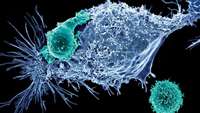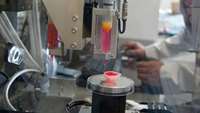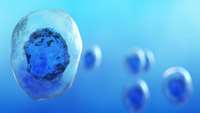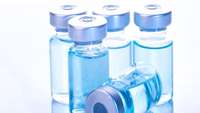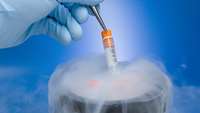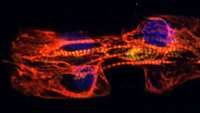Fate Therapeutics Announces Off-the-Shelf CAR T-cell Cancer Immunotherapy to be Featured at 2018 AACR Annual Meeting Press Program
Fate Therapeutics a clinical-stage biopharmaceutical company dedicated to the development of programmed cellular immunotherapies for cancer and immune disorders, announced today that the Company is presenting new preclinical data on FT819, its off-the-shelf CAR T-cell product candidate, at the American Association for Cancer Research (AACR) Annual Meeting being held from April 14-18, 2018 in Chicago, Illinois.
Team develops 3-D tissue model of a developing human heart
The heart is the first organ to develop in the womb and the first cause of concern for many parents.
Advantages of non-cryopreserved autologous hematopoietic stem cell transplantation against a cryopreserved strategy
Autologous stem cell transplantation (auto-HSCT) is an effective treatment strategy for hematological malignancies. The standard mode of handling hematopoietic progenitors for the autologous procedure (CRYO) consists on its collection and freezing with dimethyl sulfoxide (DMSO) and its subsequent thawing and re-infusion.
Immune cells unexpectedly help the heart keep its beat
The immune cells known as macrophages have a long to-do list in our bodies. They defend us from bacteria, coax wounds to heal, and perform other vital tasks. A surprising new study suggests they are also essential for the heart to beat normally. That could make macrophages prime targets for treating conditions like arrhythmias, in which the heart beats erratically.
Bill Gates says it would be a tragedy to pass up a controversial, revolutionary gene-editing technology
The ability to rewrite the genetic code for life is a powerful one. In the past few years, scientists have revolutionized our ability to do so with the discovery and refinement of a molecular tool called CRISPR that allows us to edit sections of DNA. This tool can snip specific parts of genetic code out and replace them with new segments, eliminating diseases or giving creatures whole new traits.
Novartis buying AveXis for $8.7B in big gene therapy bet
Swiss drugmaker Novartis said Monday that it will acquire a Chicago-based gene therapy company that has been working on a new treatment for infants in an $8.7 billion deal.
Pfizer and Allogene Agree to Collaborate on Developing Donor-derived CAR T-cell Therapies
Pfizer and Allogene Therapeutics have entered into a contribution agreement for Pfizer’s portfolio of assets related to donor-derived chimeric antigen receptor T-cell (CAR T) therapy, a kind of cell therapy directed at blood cancers and solid tumors.
Frozen embryos result in just as many live births in IVF
Freezing and subsequent transfer of embryos gives infertile couples just as much of a chance of having a child as using fresh embryos for in vitro fertilization (IVF), research from Ho Chi Minh City, Vietnam, and Adelaide, Australia has found.
Mending broken hearts with cardiomyocyte molds
2.5 billion. Thats approximately the number of times the human heart beats in 70 years. And sometimes during the course of its unrelenting contractions and relaxations, the heart muscle can no longer bear the strain.
Mouse model of intellectual disability isolates learning gene
Adult male mice lacking a gene linked to intellectual disability have trouble completing and remembering mazes, with no changes in social or repetitive behavior, according to new research published in JNeurosci. This animal model provides a new way to study the role of this gene in learning and memory and provides a rodent model of pure intellectual disability.


